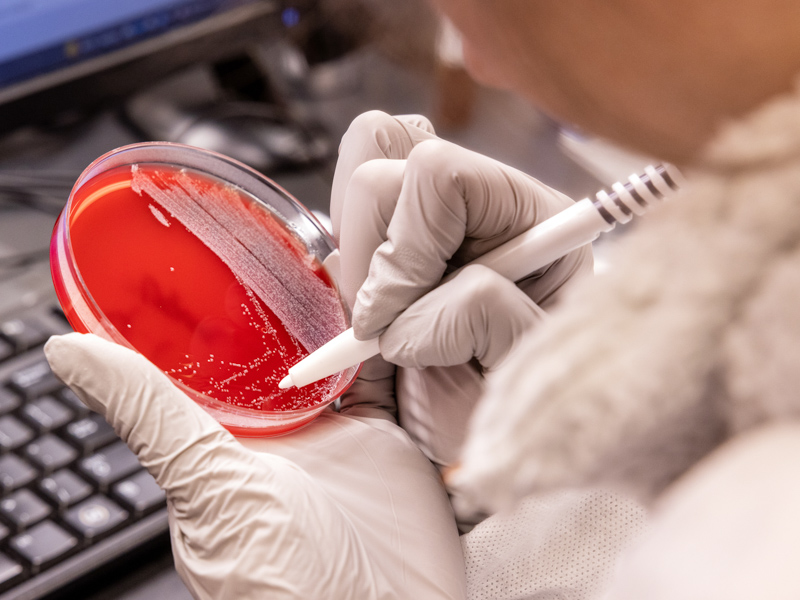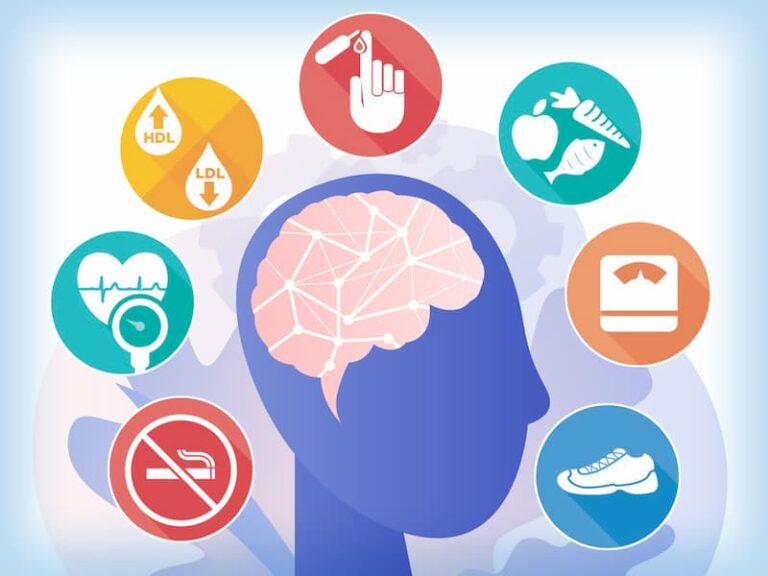When your dog chomps his teeth at you, it could be a sign of pain or discomfort. It is important to consult with your vet to determine the cause and address any potential health issues.
The behavior could indicate dental problems, such as periodontal disease or toothache, or it could be a symptom of arthritis or general soreness. Additionally, some dogs may mouth or nip during play, excitement, or impatience, which is a natural instinct for certain breeds.
Understanding the reason behind your dog’s teeth chomping can help you take appropriate action to ensure their well-being and maintain a harmonious relationship.

Credit: www.amazon.com
Understanding Teeth Chattering In Dogs
Dog teeth chattering can have various meanings, including excitement or nervousness. However, if your dog chomps his teeth at you, it may be a sign of aggression or pain. It’s important to understand the underlying cause and consult a vet if necessary.
Dogs are known for their unique behaviors, and teeth chattering is one of them. If you’ve ever witnessed your furry friend chomping his teeth at you, you might be wondering what it means. Teeth chattering can indicate various things, including both behavioral and health reasons. Understanding the causes behind this behavior can help you address any underlying issues and ensure your dog’s well-being.Common Causes Of Teeth Chattering
Teeth chattering in dogs can occur due to several reasons. Some of the common causes include:- Pain or Discomfort: Your dog may be experiencing pain or discomfort, such as from dental issues, periodontal disease, arthritis, or general soreness.
- Excitement or Nervousness: Dogs may chatter their teeth when they are excited or nervous. This could be a response to a new environment, meeting new people, or encountering unfamiliar stimuli.
- Response to Cold: Dogs, especially smaller breeds, may chomp their teeth when they are cold. This behavior helps generate warmth and regulate their body temperature.
- Stress or Anxiety: Dogs may exhibit teeth chattering as a response to stress or anxiety. This could be triggered by separation anxiety, loud noises, or other stressful situations.
Behavioral Reasons For Teeth Chattering
Teeth chattering can also be attributed to behavioral reasons. Some of these include:- Playful Behavior: Dogs may chomp their teeth during play, particularly when they are excited or engaged in chasing activities.
- Mouthing or Nipping: Certain breeds, such as herding dogs, have a natural instinct to mouth or nip. They might chomp their teeth lightly while playing or trying to herd.
- Attention-Seeking: Some dogs may chomp their teeth as a way to get attention from their owners. This behavior is often accompanied by other attention-seeking behaviors like pawing or barking.
Health Reasons For Teeth Chattering
Teeth chattering can also be a symptom of underlying health issues. These may include:- Dental Problems: Dental issues like toothache, gum disease, or oral infections can cause teeth chattering in dogs. Regular dental care and check-ups are essential to maintain your dog’s oral health.
- Pain or Discomfort: Dogs may chomp their teeth as a response to pain or discomfort, such as from arthritis or musculoskeletal issues. If you suspect your dog is in pain, it’s important to consult with your veterinarian for a proper diagnosis and treatment.
- Neurological Disorders: In some cases, teeth chattering can be a symptom of neurological disorders like seizures or tremors. If you notice this behavior along with other concerning symptoms, it’s crucial to seek veterinary attention.

Credit: www.amazon.com
Identifying Aggressive Behavior In Dogs
Dogs use various forms of communication to express themselves, and sometimes we may find ourselves wondering what certain behaviors mean. One such behavior is when a dog chomps their teeth at us, which can be alarming and confusing. In order to address this issue, it’s important to first differentiate between normal play mouthing and aggressive behavior. By understanding the signs of aggression and learning how to deal with it, you can create a safer and more harmonious environment for both you and your canine companion.
Differentiating Between Normal Play Mouthing And Aggressive Behavior
Mouthing is a normal behavior for dogs, especially during play or when they are excited. It’s their way of exploring the world, much like how humans use their hands. However, it’s essential to distinguish between harmless play and aggressive behavior so that we can respond appropriately.
Here are some key factors to consider when differentiating between the two:
- Intensity: Normal play mouthing is gentle, while aggressive behavior involves more force and pressure.
- Body language: A dog engaging in play mouthing will often have a relaxed body posture, wagging tail, and a playful expression. On the other hand, a dog displaying aggression may show signs of tension, such as stiff body posture, raised hackles, and a focused or intense gaze.
- Context: Play mouthing usually occurs during games or interactions initiated by the dog, while aggressive behavior can be triggered by various factors and may not necessarily be play-related.
Recognizing the signs of aggression in dogs is crucial for addressing the issue effectively:
- Growling and snarling: These vocalizations are clear indicators that your dog is feeling threatened or defensive.
- Showing teeth: If your dog curls their lips, bares their teeth, or chomps their jaws when interacting with you, it could be a sign of aggression.
- Stiff body posture: Aggressive dogs often hold themselves rigidly, with raised hackles and a tense overall appearance.
- Direct eye contact: A dog displaying aggression may lock eyes with their target, focusing intently and unnervingly.
When you observe aggressive behavior in your dog, it’s essential to address the issue and seek professional help if needed. Here are some steps you can take:
- Consult a professional: Reach out to a qualified dog behaviorist or trainer who can assess the situation and provide guidance tailored to your dog’s specific needs.
- Implement positive reinforcement training: Use reward-based training techniques to reinforce desirable behaviors and redirect your dog’s focus away from aggression.
- Create a calming environment: Provide your dog with a safe and secure space where they can relax and feel less anxious.
- Avoid punishment: Punishment can exacerbate aggressive behavior or lead to further issues, so focus on positive reinforcement instead.
Remember, addressing aggressive behavior in dogs requires patience, consistency, and professional guidance. With the right approach, you can help your dog overcome their aggression and foster a harmonious relationship based on trust and understanding.
Seeking Veterinary Help For Teeth Chattering
If your dog chomps his teeth at you, it may indicate various things, such as pain, periodontal disease, toothache, or general soreness. It’s advisable to consult with a veterinarian if the teeth chattering persists, as it could be a sign of underlying health issues.
Seeking Veterinary Help for Teeth ChatteringWhen To Consult A Veterinarian
If you’ve noticed your dog chomping his teeth at you, it can be a cause for concern. Teeth chattering can indicate underlying dental and oral health issues that require veterinary attention. While occasional teeth chattering can be normal, persistent or excessive chomping should prompt you to seek help from a veterinarian.Possible Dental And Oral Health Issues
There are several potential reasons why your dog may be chomping his teeth at you. Dental problems such as tooth decay, gum disease, or a toothache can cause discomfort and lead to teeth chattering. Additionally, oral health issues like oral tumors or foreign objects stuck in the gums can also be a source of chomping behavior. It’s important to consult a veterinarian to accurately diagnose the underlying cause of your dog’s teeth chattering.Treatment Options For Teeth Chattering
Once you have sought veterinary help and received a proper diagnosis, your veterinarian may recommend various treatment options for your dog’s teeth chattering. Treatment can vary depending on the specific cause of the chomping behavior. It could include dental cleanings, extractions, medications for oral infections or pain management, or even surgical procedures to remove tumors or foreign objects. Your veterinarian will tailor the treatment plan to address your dog’s specific needs. In conclusion, when it comes to teeth chattering in dogs, it is essential to consult a veterinarian. Dental and oral health issues can cause discomfort and lead to this behavior. By seeking veterinary help, you can ensure your dog receives the necessary treatment to address the underlying cause and alleviate any discomfort. Remember, regular dental care and check-ups are crucial for maintaining your dog’s oral health and overall well-being.
Credit: www.umc.edu
Frequently Asked Questions Of Why Does My Dog Chomp His Teeth At Me
Why Does My Dog Snap His Jaws At Me?
A dog may snap its jaws to communicate a warning instead of biting. This could indicate excitement, nervousness, or pain. If the behavior persists or is accompanied by signs of pain, it’s best to consult with a vet.
What Does It Mean When My Dog Chomps His Teeth?
Teeth chattering or chomping in dogs can have various meanings. It could indicate pain, periodontal disease, toothache, arthritis, or general soreness. If the teeth chattering persists and seems to be a sign of pain, it is best to consult with a vet.
Dogs may also chomp or nip during play, excitement, or impatience. It is important to differentiate between normal play mouthing and aggressive behavior. Social anxiety can also cause dogs to chomp their teeth as a signal of stress or nervousness.
Why Does My Dog Chomp At Me?
Dogs may chomp at you due to excitement, nervousness, pain, or play behavior. It can be a way for them to communicate or release stress. If it persists or seems to indicate pain, consult with a vet.
Why Is My Dog Chomping His Mouth At Me?
When a dog chomps its mouth at you, it can indicate excitement, nervousness, pain, or a warning sign of aggression. It’s important to observe your dog’s behavior and consult with a vet if the chomping persists or is accompanied by other concerning signs.
Conclusion
Teeth chattering in dogs can have various meanings. It could be a sign of excitement, nervousness, or even pain. If your dog consistently chomps his teeth, it may indicate a dental issue or discomfort. It’s important to monitor your dog’s behavior and consult a veterinarian if necessary.
Remember, dogs communicate through different behaviors, and teeth chomping is their way of conveying a message. Understanding and addressing their needs will help maintain a harmonious relationship with your furry friend.



